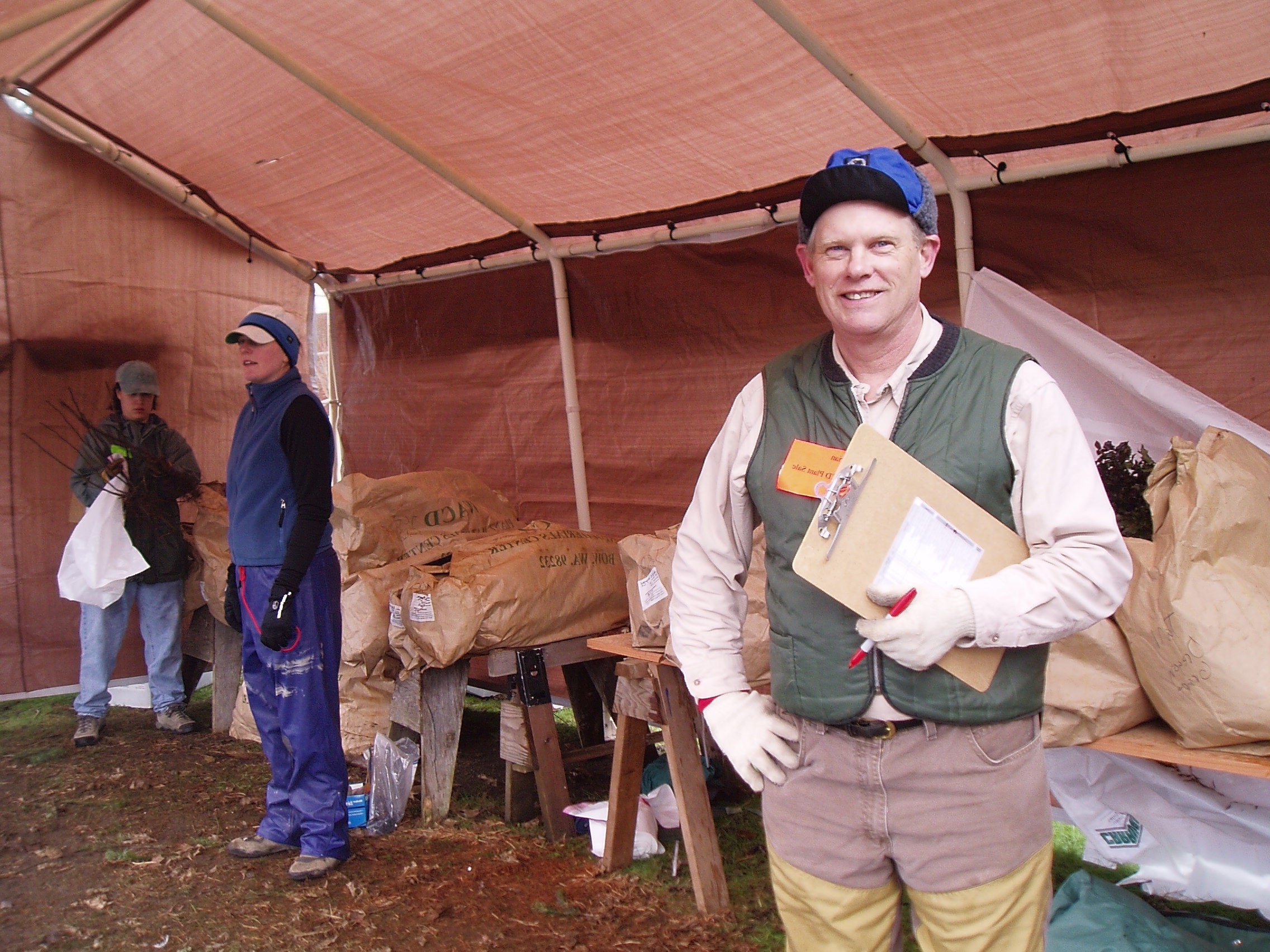
By Melanie Kallas Ricklefs
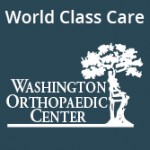 Spring is fast approaching, and with it comes longer days, warmer temperatures, and the opportunity to create a garden oasis in your backyard. There are so many types of trees, shrubs, and flowering plants to choose from when designing your landscape, but not all have the same benefits. If you have plans for spring planting this year, you may want to consider incorporating native plants.
Spring is fast approaching, and with it comes longer days, warmer temperatures, and the opportunity to create a garden oasis in your backyard. There are so many types of trees, shrubs, and flowering plants to choose from when designing your landscape, but not all have the same benefits. If you have plans for spring planting this year, you may want to consider incorporating native plants.
Jen Thurman-Williams, native plant sale coordinator for the Mason Conservation District (MCD), says that because native plants are adapted to our climate, they can survive without the use of fertilizers and pesticides. They are also able to thrive on their own without watering after the first two years. Some native plants have attractive flowers with inviting scents to enhance your landscape, and many benefit wildlife.
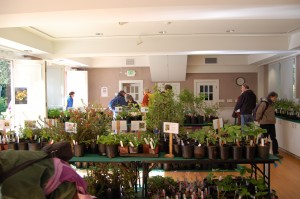
Each year, our local conservation districts hold native plant sales. They provide the opportunity to order bare-root plants, shrubs, and trees through their websites from November through January. Bare-root plants are sold in bunches and are an affordable way to plant your landscape. They are also the best option for any restoration or conservation projects you may have in mind. Jen says that while the MCD sale is technically over, they will accept online orders while supplies last.
The MCD plant sale website includes site-specific recommendations to help you determine which plants would be best suited for your landscape. Recommendations include tree species, shrubs, flowering plants, and ground cover that would grow optimally given the environmental conditions. If you are looking to attract hummingbirds and butterflies, while also incorporating beautiful blossoms into your landscape, Jen recommends red flowering currant and mock orange. The MCD inventory not only includes plants that provide food for wildlife, it also includes edibles such as thimbleberry and salmonberry.
The Thurston Conservation District (TCD) is holding a native plant sale in their parking lot on March 7 from 10:00 a.m. to 3:00 p.m. The TCD is located at 2918 Ferguson Street SW, Building 1 Suite A in Tumwater. According to Stephanie Bishop, the South Sound GREEN Coordinator for TCD, the conservation district will be selling individual plant species as well as combinations of species that meet a common objective. They will offer a “Pollinator Package” which includes plants with long blooming periods that overlap with one another to provide a constant food source for pollinators. They will also offer a “Landscape Package” which includes drought resistant plants with showy flowers and pleasant aromas.
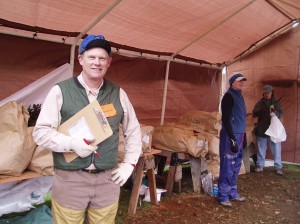
During the parking lot sale, TCD staff will be available to answer questions about the native plants available, and which species may be suitable for your landscape. The conservation district will also provide workshops throughout the day on topics including composting, mushroom log inoculation, plant selection and placement for water efficiency, prairie importance, pollination, and rain garden establishment. The Henderson Inlet Community Shellfish Farm and Taylor Shellfish Farms will be on site to provide shellfish and talk about keeping Puget Sound clean.
The Washington Native Plant Society (WNPS) offers a native plant sale each year at the Capital Museum Coach House in Olympia at 211 21st Avenue SW in Olympia. This year’s plant sale will take place on April 18, from 9:00 a.m. to 3:00 p.m. WNPS provides reasonably-priced potted plants that consist of primarily shrubs and herbaceous plants. Their stock differs from year to year, but they consistently offer native evergreen shrubs, ferns, and huckleberry bushes.
According to Bill Brookreson, Chair of the South Sound Chapter of the WNPS, the proceeds from their plant sales fund free public education programs offered by WNPS, and grants for community projects. WNPS has used previous plant sale funds to create brochures and plant labels for the Nisqually Reach Nature Center. They have also provided support to students in our community by funding educational field trips, and helping to establish native plant and prairie gardens at local schools as part of their science curriculum.
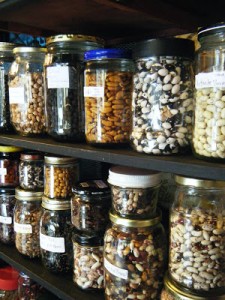
If spring planting makes you think more of growing food than native plants, you may want to check out the Olympia Seed Exchange. All of the seeds at the Olympia Seed Exchange are free, but they encourage people to take only what they need, so that there will be enough for all who want to participate. The Olympia Seed Exchange is stocked by donations, so please donate seeds in exchange for those you take.
The Olympia Seed Exchange is currently housed on the second floor of the Eastside Urban Farm and Garden Center located at 2325 4th Avenue East in Olympia, and is open during store hours. The Olympia Seed Exchange also offers a seed saving certification program to educate people on proper seed saving techniques. More information about this program can be found at http://www.southsoundseedcoalition.com/.

















































